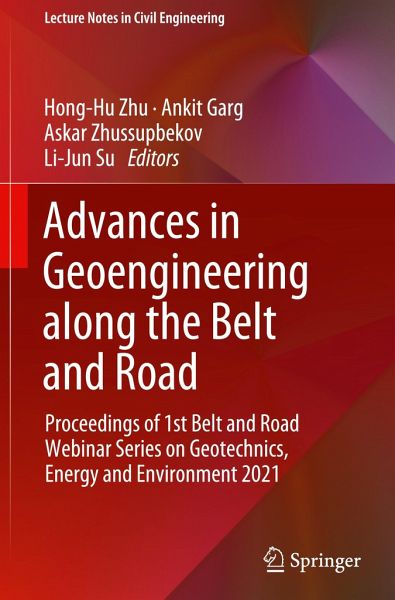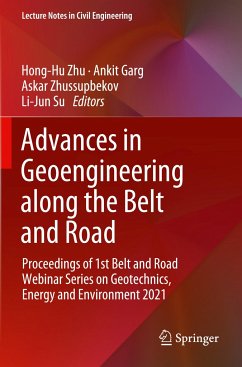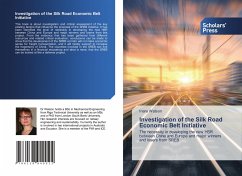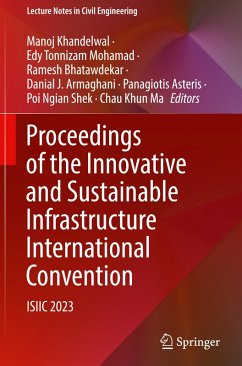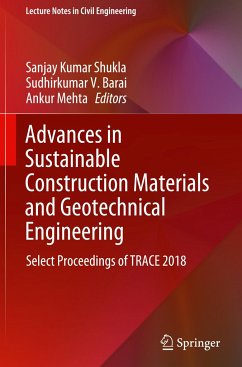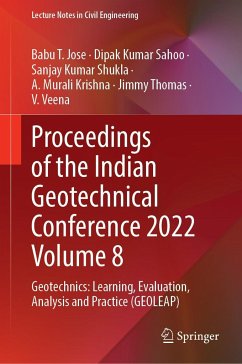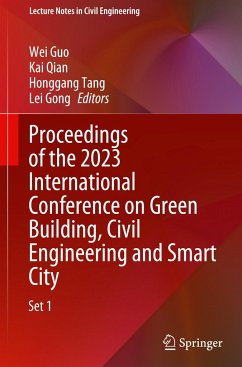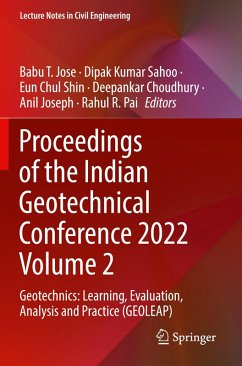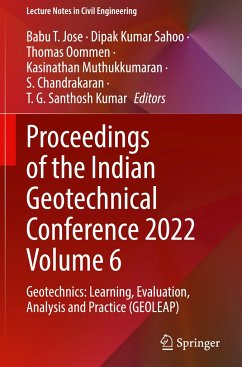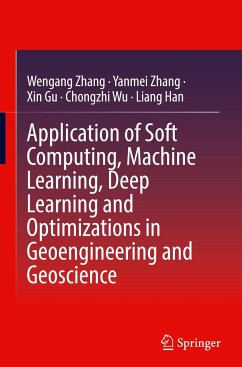Prof. Hong-Hu Zhu is a Professor of engineering geology and geotechnics and the dean of Institute of Earth Exploration and Sensing at Nanjing University, China. He holds a Ph.D. degree in Geotechnical Engineering from The Hong Kong Polytechnic University. His research interests lie primarily in fiber optic monitoring and stability evaluation of geohazards. In the past decade, he has coauthored 2 books, 10 patents, and over 80 international journal and conference papers. Dr. Ankit Garg is currently Associate Professor at Department of Civil and Environmental Engineering, Shantou University, China. He obtained his PhD from Hong Kong University of Science and Technology under Hong Kong PhD Fellowship Scheme and B. Tech from IIT Guwahati (2006-2010). He was a former Assistant Professor at IIT, Guwahati (2015-2017) and part time World Bank Consultant (2016-2017) for monitoring transport infrastructure projects in Assam, India. He was also appointed foreign specialist at Eurasian National University, Kazakhstan. His research focus on development and utilization of sustainable materials (biochar, fiber) including vegetation for geo-environmental applications. He has been recently awarded prestigious "Telford Premium Prize" from British Civil Engineers Association for publication in Geotechnique letters, ICE, UK. My research group has been also cited by (Refer to Green Infrastructure and Water: An Analysis of Global Research by Caparrós-Martínez et al. 2020) for most number of publications in Web of Science. He is also currently Guest Editor for Special Issues related to IoT and AI in geotechnical engineering in Journal of Rock Mechanics and Geotechnical Engineering. Besides, he was awarded Talented Youth Scientist Program, Young Doctor Award from Ministry of Education Guangdong, and International Scientist Exchange Program. Further, he currently presides over National Natural Science Foundation of China (NSFC) YouthProject on "Vegetation for soil remediation. He has also been awarded Young Alumni Achiever Award for his research contributions at young age. Prof. Askar Zhussupbekov was born in 1955 at Agatan, Uralsk prefecture in Kazakhstan. He received his Diploma of Civil Engineering (1977) from Saint-Petersburg State Architectural and Civil Engineering University (SPBGASU), Saint-Petersburg, Russia, and his Dr. Ph. Degree (1985) from SPBGASU, and his Doctor of Science degree (1996) from Karaganda State Technical University (Karaganda, Kazakhstan). He was employed by Department of Civil Engineering of Karaganda State Industrial University, where he became Head of the Department of Civil Engineering at 1987, and also First vice-rector of this University (1999). In 2000, he was elected as Professor of Department of Civil Engineering of Eurasian National University (ENU), Astana, Kazakhstan. He was appointed Director of Geotechnical Institute of ENU, Astana, Kazakhstan (2003). In 2009, Askar Zhussupbekov was elected to the rank of Head of Department of Civil Engineering of ENU. At 2011-2012 he was visiting Professor of Columbia University, New York (USA), and 2012-2013 was as inviting Professor of Columbia University (New York). The main field of expertise of Askar Zhussupbekov is geotechnical engineering (piling and deep foundations), geomonitoring, undermining soil ground, disaster prevention and reduction, in situ testing. He carries out theoretical and experimental research, as well as consulting work for civil and geotechnical projects at new capital Astana (Kazakhstan), West Kazakhstan (Caspian Sea area), Almaty (old capital of Kazakhstan), Saint-Petersburg, Yuzhno-Sakhalinsk (Russia). He is a scientific consultant on piling works of such projects as the second generation plant and in Tengiz (Caspian Sea coast) and Karabotan, Kashagan (Atyrau), where the clients are PFD company (USA), AGIP (Italy); the International Airport Project in Astana( new capital), the clients are Asian Pacific (Japan) and Alsim Alarko (Turkey); Buildings for the USA Embassy, the client is Fluor Caspian Services, Ltd (USA) and other Mega Projects on problematical soil ground of Kazakhstan, like as EXPO 2017, Abu-Dhabi Plaza (Astana). Starting in 2013, Askar Zhussupbekov has been, appointed as Chair of T305 (ISSMGE) "Geotechnical Infrastructure of Mega cities and new capitals". He organized several workshops at Eurasian National University related with this TC305 activity. He is also active member of ATC-3, ATC-10, ATC-19, RSSMGE, IALT. Prof. Askar is Past Vice President of ISSMGE for Asia, President of Kazakhstan Geotechnical Society. He has been supervised more than 40 Dr. Ph. dissertations and 10 Dr. Engineering dissertations (included foreign students from Japan, Turkey, South Korea, Cambodia, Tajikistan, Mongolia, Russia). Askar Zhussupbekov has been extensively traveled to deliver the invited lecturesregarding on the geotechnical problems with soft soil ground in different universities and companies all over the world. He has published more than 350 scientific papers includingn4 books on Geotechnical Engineering. He organized several international geotechnical conferences at Astana (1997, 2000, 2001, 2005), Atyrau, 2003 (Kazakhstan), Saint-Petersburg, 2003 (Russia), Samarkand, 2003 (Uzbekistan), Tokyo, 2003, (Japan), Almaty, 2004 (Kazakhstan), Dushanbe, 2005 (Tajikistan), Yuzhno-Sakhalinsk, 2007 (Russia), Harbin, 2009 (China), Moscow, 2010 (Russia), Hong Kong, 2011 (China), Bandung, 2012 (Indonesia), New York, 2013 (USA), Chennai, 2015 (India), Chengdu, 2018 (China), Incheon, 2018 (South Korea), Florida, 2018 (USA), New York, 2020 (USA) and in other countries. Prof. Li-jun Su is currently Professor and deputy director general of Institute of Mountain Hazards and Environment, Chinese Academy of Sciences, Chengdu, China. He is also deputy director general of China-Pakistan joint Research Center on Earth Sciences. He obtained his PhD at the Hong Kong Polytechnic University in 2006. After that, he joined the Xi'an University of Architecture and Technology as an associate professor. From 2008 to 2011, he worked at the University of Wollongong, Australia as a research fellow. He has around 15 years' experiences in research and teaching in geotechnical engineering. He conducted numerous pull-out tests of soil nails to investigate the mechanism of a soil nail in stabilizing slopes. He is currently working on the mechanism and hazard risk analysis of landslides under the support of several national research funds. He has recently developed a seepage model that can consider the preferential flow of rainfall water in a slope. This model overcame the difficulty of current seepage model in simulating deep-seated landslides. He developed comprehensive geophysical methods to generate the geological structure and underground water condition of deep-seated landslides. His research interests are also include the mechanism and risk of seismic landslides by conducting shaking table tests and developing new evaluation models. He has published more than 100 papers in top journals and international conferences. His wide research experience in soil and rock mechanics, engineering geology and geophysical methods is very important for conducting multi-discipline research.
